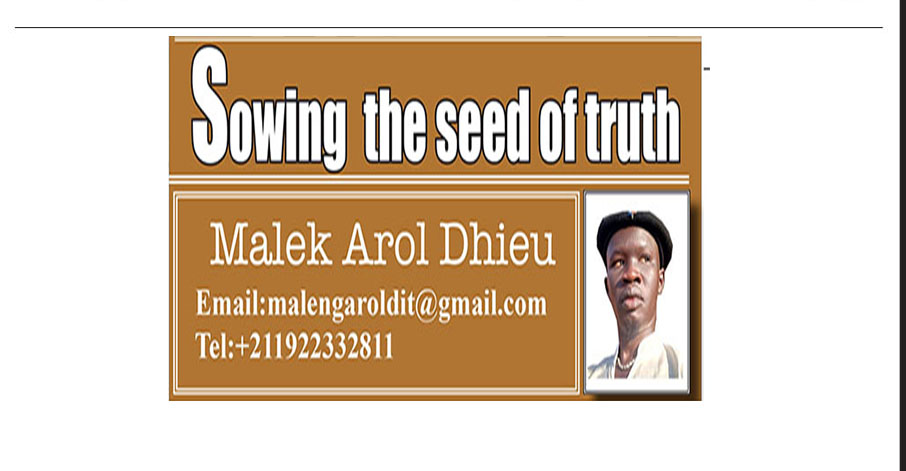I thought “uncle” was an English word only meaning a brother to one’s father or a brother to one’s mother; little did I know uncle is someone’s backup in anything he needs in life.
The first time I began beginning to know the non-dictionary meaning of uncle was in 2012 when I was in search of a scholarship. Online scholarships, believed to be free from uncle-ism, were not there and so, students had to wait for scholarships from the ministries concerned. As one of the students with high grades, I was aiming for a scholarship for medicine.
When scholarships came, I could rush to get one, but unfortunately, I could not even get a form to fill. Standing in the line, together with other students, big people, some in military uniforms with more than 6 stars (of course, the ones they call Generals) and others in suits tagged with more than one flag of South Sudan, could bypass us and came back holding more than one scholarship forms.
So, we could wonder about that type of arrangement in the ministry. Our queue could not move an inch because the students being served were outside the queue. Lastly, we were shocked by the news that scholarship forms were over and we could wait for others; maybe a month, two or three later.
The subsequent scholarships were still malpractice and corrupted by big people to take their children abroad. But when I asked other students what our problem could be, they told me if you want to get a scholarship form easily, you have to come with your uncle, not just your uncle, but the one in the government. I told them I have a distant uncle, so I will go to him tomorrow to help me get a form.
When I went to my distant uncle and requested him to pick for me a scholarship form, he truly acted like a distant uncle. He refused and there was nothing I could do about it. I felt unwanted and disowned to the core, to the real core that I was thinking of something stupid.
But I consoled myself and came to the conclusion that I will study medicine in South Sudan. If I’m also rejected here with that satisfactory average, then that would be something else. Maybe my grandfather had killed the grandfather of someone working in the Directorate of Admission and Scholarship and I’m not aware of it. These were the thoughts in my mind, I was so much worried. As if God has heard me, I was admitted in the University of Juba, School of Medicine. And I told myself that the university abroad does not drive education into one’s mind, it largely depends on a scholar.
Since then, I never miss a month encountering a case connected to an uncle in the government, either with me or a colleague. But the tragedy happened, the uncle-ism also spread to NGOs. So many job seekers are job seekers because they do not have uncles to recommend them to get jobs.
It has been dusted and sealed in the people’s minds that competence, qualifications, and experience died a long time ago and that, the only way to get a job, win a court case, exit prison, or enter politics, is to have an uncle in the government, not just an uncle, but that uncle whose eyes are not seen. I hope you have understood me.
As someone having a number of younger siblings, I’m trying my best to become the founding uncle, the first ever uncle to recommend my family members for anything they need in life. I sweat day and night, working hard to fix myself in one of the government-owned institutions and abuse my powers to recommend my relatives or recommend non-relatives in exchange for something oily.
I’m tired of looking for an uncle to recommend me and I do not want my younger siblings to get tired as well. My only difference with the present uncles is that, I will not recommend my immediate relatives like they do, but I will recommend distant relatives from all the corners of South Sudan if and only if they are competent, experienced and qualified. I hope I will be a good uncle. Won’t I be?
The author is a medical student, University of Juba.




